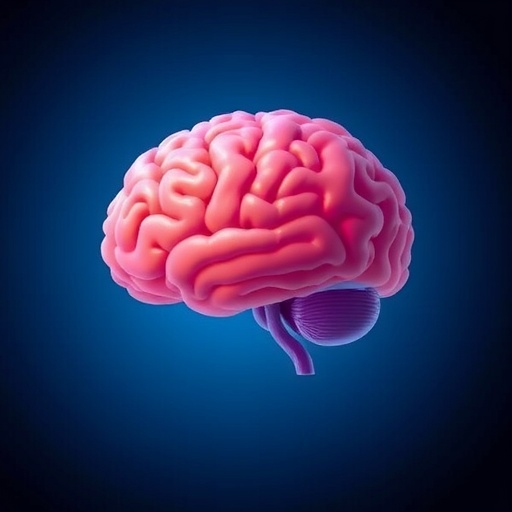The landscape of healthcare is constantly evolving, particularly in the field of geriatric medicine where age-related cognitive decline poses significant challenges. Recent research conducted by Xia, Wang, and Liu sheds light on a disturbing yet crucial aspect of cognitive health in older patients who are undergoing maintenance hemodialysis. The study highlights the intricate relationship between cognitive reserve and the risk of cognitive frailty, a condition increasingly prevalent among this demographic.
Cognitive frailty is defined as a combination of physical frailty and cognitive impairment, which together heighten the risk of adverse health outcomes, including hospitalizations, loss of independence, and mortality. The implications of cognitive frailty are especially pronounced in older adults who are already vulnerable due to other health complications. Xia and colleagues delve into how cognitive reserve, which encompasses the brain’s resilience against neurological damage, could act as a protective factor against this frailty.
Cognitive reserve is a concept that has gained traction in neuropsychology and geriatric medicine, reflecting the brain’s ability to improvise and find alternate ways of getting a job done. This reserve can be encoded by various factors, including educational attainment, occupational complexity, and engagement in intellectually stimulating activities. The central question posed in this research is whether a higher cognitive reserve can mitigate cognitive decline and frailty in patients on hemodialysis.
In their cross-sectional study, the researchers meticulously selected a population of older adults undergoing maintenance hemodialysis. The selection criteria ensured that the patients were representative of the broader elderly population facing similar health challenges. The resulting sample allowed for a comprehensive analysis of cognitive performance, frailty assessments, and evaluations of cognitive reserve levels.
The findings revealed a significant correlation between cognitive reserve and cognitive frailty. Specifically, individuals with higher cognitive reserve exhibited lower instances of cognitive frailty compared to those with lower reserve levels. This discovery is monumental as it opens up new avenues for intervention strategies. If cognitive reserve can be bolstered, it may provide a buffer against cognitive decline for older adults on hemodialysis.
Furthermore, the study was meticulously designed to account for confounding variables that often cloud such research. Factors such as comorbidities, nutritional status, and the duration of dialysis treatment were carefully controlled. By ensuring a robust methodological framework, the authors lend weight to their assertions about the protective nature of cognitive reserve.
Understanding the role of cognitive reserve has broader implications for therapeutic approaches in geriatric care. Recognizing that cognitive reserve can influence health outcomes propels the idea that healthcare providers should focus on enhancing cognitive engagement as part of comprehensive treatment plans. This could involve encouraging older patients to partake in mentally stimulating activities, socialization, and lifelong learning opportunities.
The study also emphasizes the need for healthcare systems to implement routine cognitive health screenings for frail elderly patients. As cognitive frailty can lead to severe health repercussions, early identification may facilitate timely interventions. Healthcare professionals must prioritize monitoring cognitive health as part of standard care for individuals on hemodialysis.
While the findings are promising, they do not come without limitations. The cross-sectional nature of the study precludes the possibility of establishing a causal relationship. Longitudinal studies would be required to assess whether enhancements in cognitive reserve can indeed lead to reduced cognitive frailty over time. Further research is also necessary to explore the neurobiological mechanisms at play, as well as the role of other psychosocial factors.
In conclusion, the work of Xia, Wang, and Liu significantly enriches our understanding of cognitive health in older adults undergoing hemodialysis. Their findings suggest that cognitive reserve could serve as a vital factor influencing cognitive frailty, thus presenting an opportunity for healthcare interventions that are both preventive and therapeutic. As we navigate the complexities of aging and chronic illness, this research serves as a clarion call for interdisciplinary approaches to optimize cognitive health among our aging population.
The study stands as a pioneering investigation that encourages healthcare professionals to consider cognitive reserve as a keystone in managing the health of older patients with complex medical needs. As attention continues to focus on frailty and cognitive decline, the potential to fortify cognitive reserves could be one of the most critical avenues for enhancing quality of life in elderly patients undergoing maintenance hemodialysis.
In summary, the interplay between cognitive reserve and cognitive frailty is a compelling juncture in current geriatric research. This study not only draws attention to an often-overlooked aspect of elderly care but also urges further exploration in hopes of establishing effective interventions. As we look to the future, understanding and enhancing cognitive reserve could pave the way for substantial improvements in the lives of older adults facing the challenges of cognitive frailty.
Subject of Research: Cognitive reserve and its influence on cognitive frailty in older patients on maintenance hemodialysis.
Article Title: The effect of cognitive reserve on the risk of cognitive frailty in older patients receiving maintenance hemodialysis: a cross-sectional study.
Article References:
Xia, Nn., Wang, Hy. & Liu, J. The effect of cognitive reserve on the risk of cognitive frailty in older patients receiving maintenance hemodialysis: a cross-sectional study.
Eur Geriatr Med (2025). https://doi.org/10.1007/s41999-025-01260-6
Image Credits: AI Generated
DOI: 10.1007/s41999-025-01260-6
Keywords: cognitive reserve, cognitive frailty, older adults, hemodialysis, geriatric medicine.




